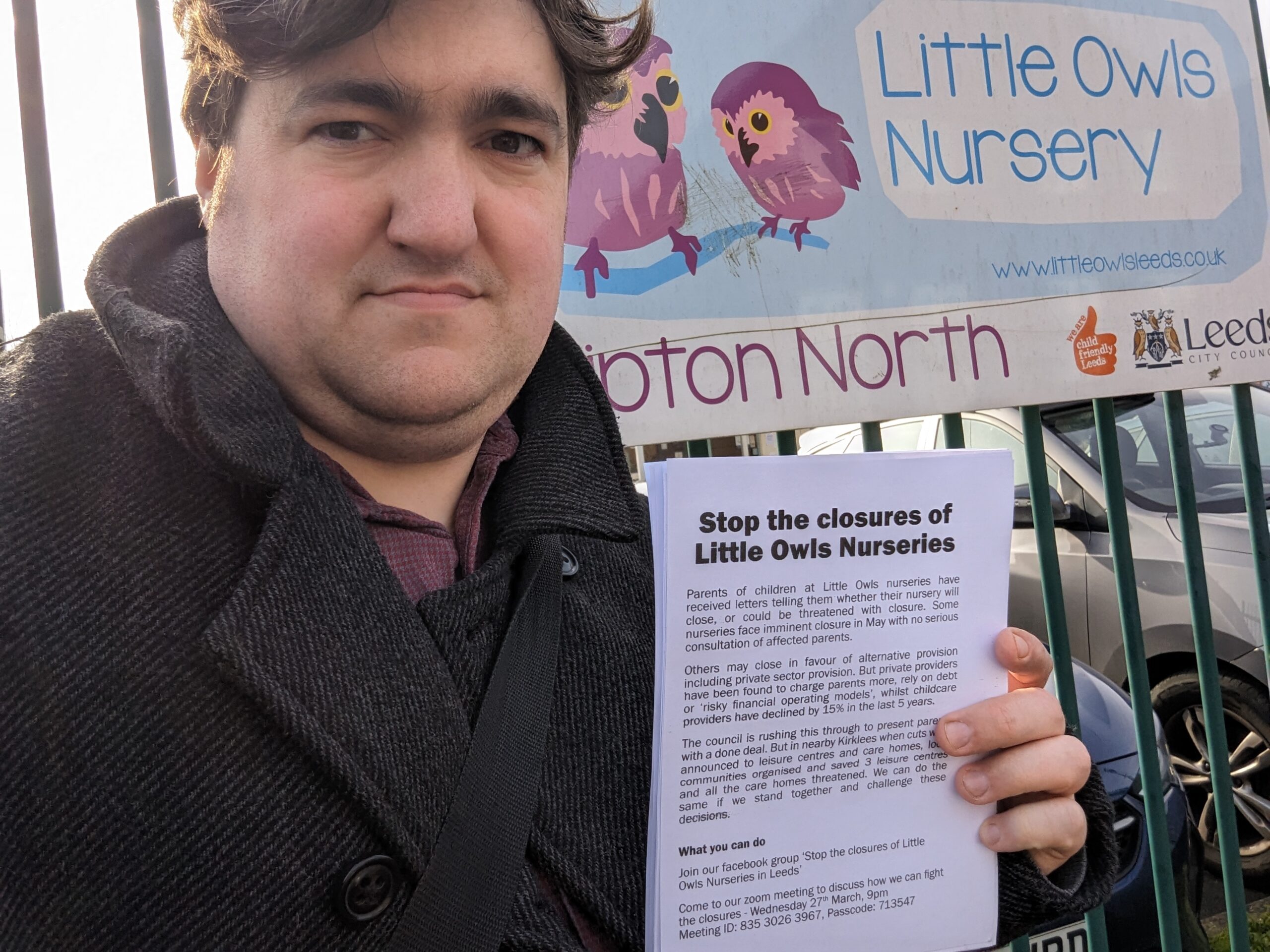Around 80 people packed into a standing room only meeting organised by the RMT (transport union) in support of the long-running dispute to maintain the safety-critical role of the guard on Northern Rail services.
Iain Dalton, Leeds Socialist Party
RMT General Secretary Mick Cash opened the meeting saying the union will take whatever action is necessary to win this dispute with strike dates planned until the end of the year.
He highlighted the way the government is backing the employers in the dispute with the Department for Transport covering Arriva’s losses from strike action.
But he also demanded firmer support from Labour councillors who make up Transport for the North (formerly Rail North) which had co-sponsored the current contract for Northern Rail services including a commitment to 50% driver-controlled operation on services. The RMT have approached both Transport for the North and Arriva to jointly seek the removal of this clause as a step towards styling the dispute.
Leeds East MP, Richard Burgon gave a fiery speech where he reiterated not just Labours pledge to renationalise the railways and end driver-only operation proposals, but also raised the need for much wider nationalisation proposals.
Joanne Thomas, Yorkshire and Humber TUC chair and Usdaw Divisional Officer spoke about how employers in many sectors including retail and trying to cut back on safety measures to boost profits.
Two local Labour councillors spoke in support of the dispute. One of them from Wakefield council asked to work more closely with the RMT to challenge those Labour councillors on Transport for the North who are reluctant to throw they’d sift behind the union in this dispute.
There was a lovely discussion from the floor about how further support could be built for the dispute with the mobilisations by Leeds TUC to the picket lines and last Saturday’s public vote activity, both initiated by local Socialist Party members, given praise.
The meeting was closed by local RMT branch secretary John Stewart reminding those present that guards weren’t striking for a pay rise but to preserve rail safety and would have lost £5-6,000 in pay if every strike day fell on one of their working days.

